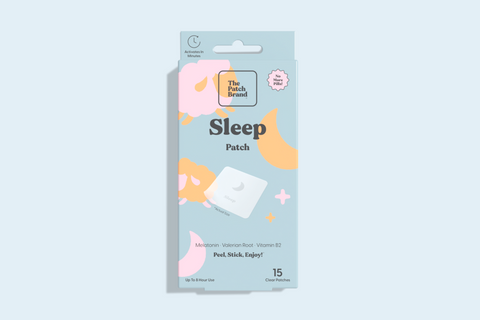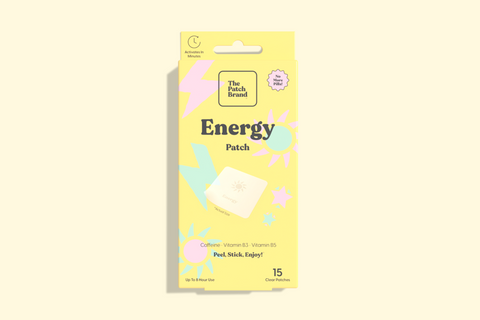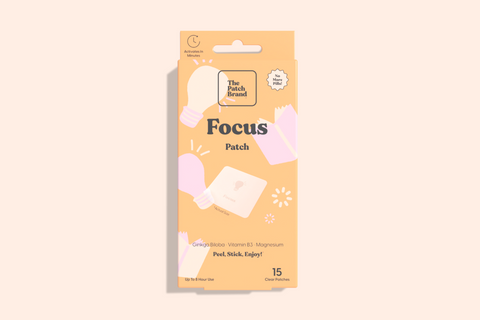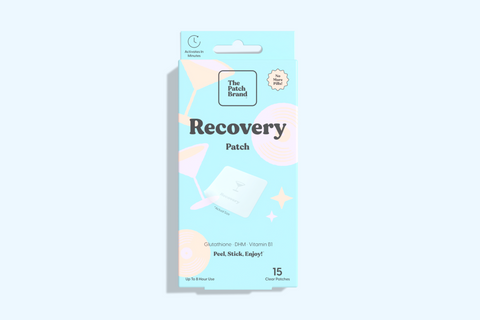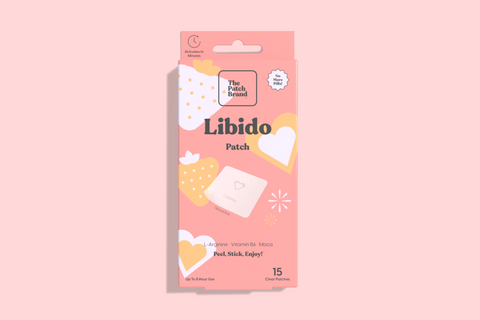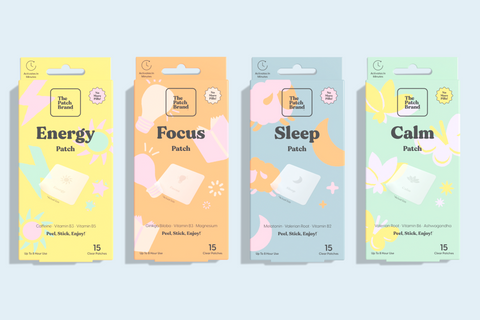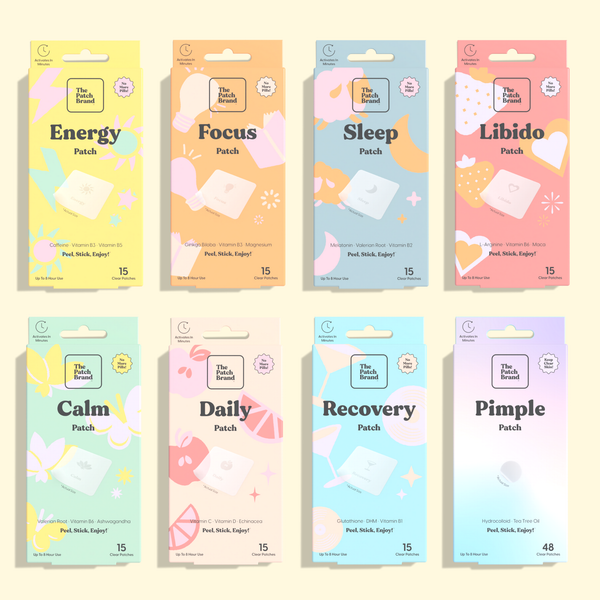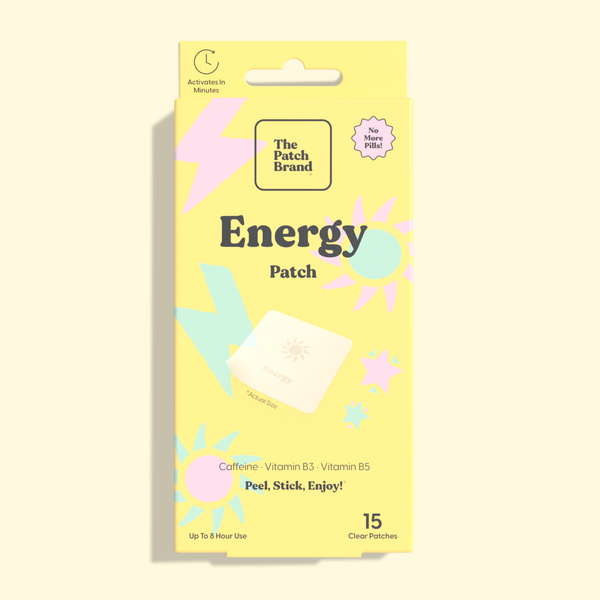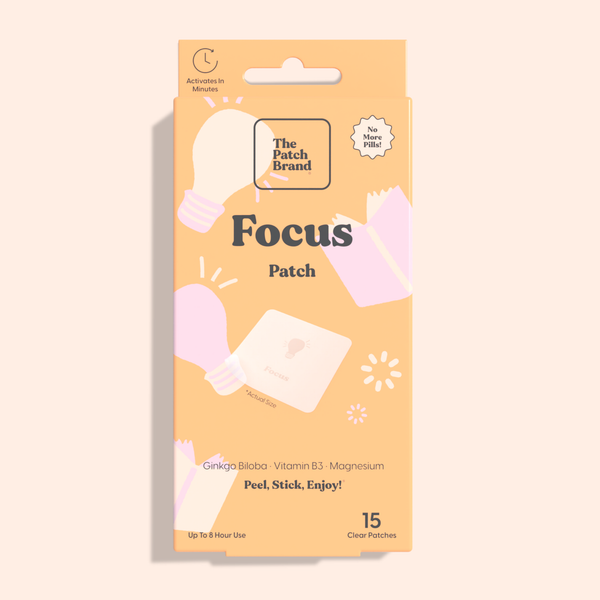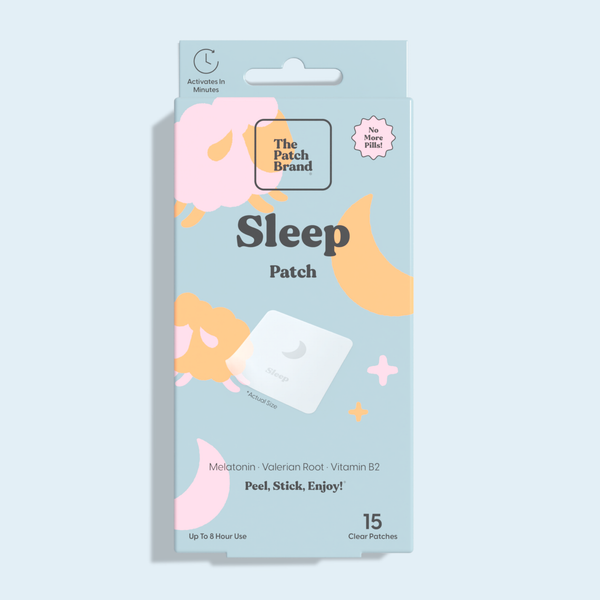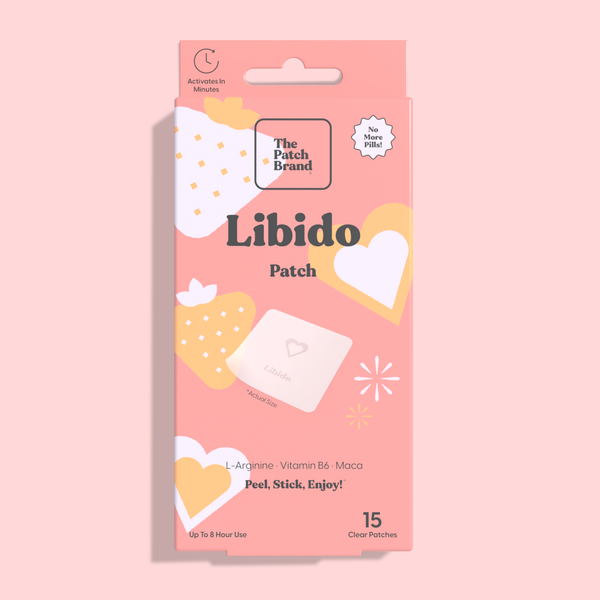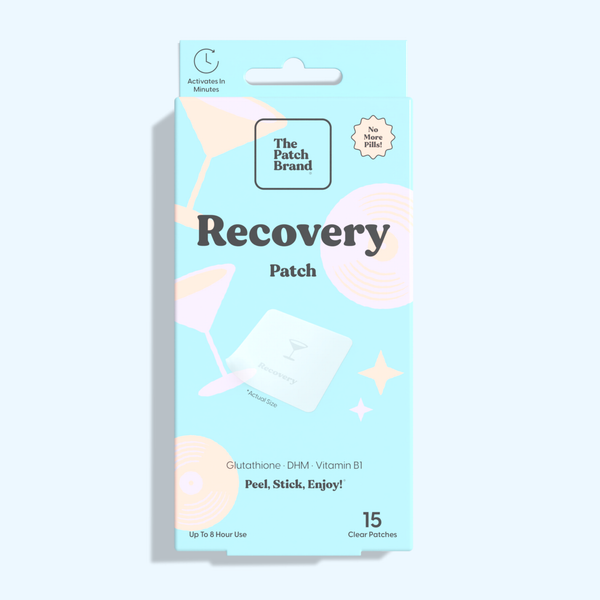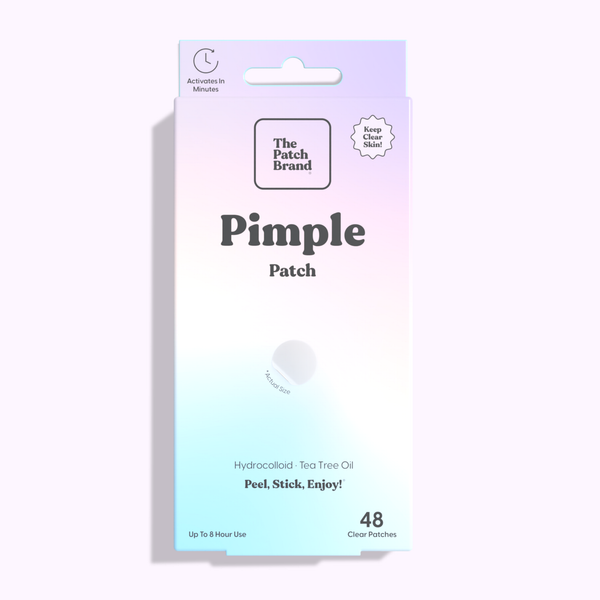In today's fast-paced world, where stress and technology often disrupt natural sleep patterns, understanding and leveraging the body's sleep-regulating hormone, melatonin, is more important than ever. This blog delves into the various aspects of melatonin, from its fundamental role in controlling biological rhythms to practical tips on enhancing its natural production and the innovative use of
melatonin patches for specific sleep-related issues. By equipping readers with knowledge and strategies, we aim to help them achieve better sleep quality and, consequently, improve their overall life quality.
Importance Of Melatonin
Melatonin, a hormone synthesized primarily in the pineal gland of the brain, is instrumental in orchestrating the body's circadian rhythm, or the internal clock that dictates sleep-wake cycles. The secretion of melatonin is highly influenced by light exposure; its levels rise in response to darkness, signaling the body to prepare for sleep, which usually peaks during the night. This mechanism is crucial for initiating and maintaining sleep, as it helps align our biological functions with day and night cycles. The effectiveness of melatonin in managing disorders such as insomnia and jet lag further underscores its role in sleep regulation.
Beyond its sleep-regulating capabilities, melatonin serves as a potent antioxidant. Antioxidants are molecules that neutralize free radicals—unstable compounds that can cause oxidative stress and subsequent cellular damage. Oxidative stress is implicated in the aging process and various diseases, including neurodegenerative disorders and cancers. Melatonin's ability to easily cross cell membranes allows it to effectively protect both lipids and proteins against oxidative damage.
How To Boost Melatonin Production Naturally
Get Plenty Of Natural Light During The Day
Natural light is the most powerful cue for regulating this internal clock, and getting plenty of it during daylight hours can enhance melatonin production, a hormone that prepares our body for sleep. To harness the benefits of natural light, try to spend significant time outdoors in natural sunlight, or in indoor settings that are well-lit with natural light. Activities such as walking or sitting near windows can suffice. This exposure particularly in the morning, can help stabilize your sleep patterns and improve nighttime sleep quality.
Avoid Screens Before Bedtime
The blue light emitted from screens such as smartphones, tablets, and computers can have a detrimental effect on sleep by suppressing the natural production of melatonin, the hormone that signals your body it’s time to sleep. To mitigate this effect, it's advisable to stop using these devices at least an hour before bedtime. Creating a habit of disconnecting from digital devices in the evening can help reinforce your body's natural progression towards sleep. Instead of screen time, consider winding down with less stimulating activities such as reading a book with soft lighting, listening to calming music, or practicing relaxation exercises. These activities can significantly improve your ability to fall asleep more quickly and enjoy a deeper sleep.
Follow A Consistent Sleep Schedule
Maintaining a consistent sleep schedule is one of the most effective strategies for promoting long-term sleep quality. Going to bed and waking up at the same time every day, even on weekends, helps to anchor your body's internal clock, enhancing melatonin production at appropriate times. Consistency strengthens the sleep-wake cycle, making it easier to fall asleep and wake up naturally. The regularity of a fixed bedtime and wake time also helps in reducing the amount of tossing and turning required to fall asleep, therefore increasing overall sleep efficiency. If you find this challenging, start by adjusting your bedtime in small increments, and over time your body will adapt to the new schedule.
Create A Sleep-Friendly Environment
Creating a sleep-friendly environment is essential for enhancing both the quality and duration of your sleep. Optimizing your bedroom conditions can significantly aid the sleep process by signaling your body it's time to rest and maintaining that state throughout the night. Here are some tips to help you create an ideal sleeping environment:
-
Keep it Dark: Darkness plays a pivotal role in signaling to your body that it's time to wind down for sleep. Installing blackout curtains can effectively block light from external sources such as street lamps and vehicle headlights, which might otherwise disrupt your sleep cycle. These curtains help to create a pitch-dark environment, stimulating your brain to release melatonin, a hormone crucial for regulating your sleep-wake cycles. For an added layer of darkness, consider using a comfortable eye mask to block out any residual light, ensuring a completely dark sleeping atmosphere and potentially enhancing your sleep quality even further.
-
Stay Cool: The temperature of your bedroom can have a significant impact on sleep quality. Keeping your sleeping environment at a cooler temperature, ideally between 60 to 67 degrees Fahrenheit, can aid in lowering your body's core temperature, which is essential for initiating sleep. As your body naturally cools down during sleep, a cooler room complements this physiological change, facilitating a quicker onset of sleep and helping you maintain deep sleep throughout the night. To achieve this, consider the use of fans or air conditioners to keep the room at a consistent, cool temperature.
-
Minimize Noise: External noises can severely disrupt your sleep cycle, even if they do not fully awaken you. Implementing sound-reducing solutions like earplugs or a white noise machine can help mask disruptive sounds from traffic, loud neighbors, or barking dogs. A white noise machine generates a steady, soothing sound that masks background noise and can be soothing in itself, reducing the time it takes to fall asleep. Alternatively, smartphone apps offer a variety of calming sounds and are a flexible solution for improving sleep quality by creating a more controlled auditory environment.
-
Comfortable Bedding: The quality of your bedding is directly tied to the quality of your sleep. High-quality mattresses and pillows should support your body and align with your sleeping position to prevent discomfort and pain. Choose bedding made from natural fibers like cotton or bamboo, which offer breathability and moisture-wicking properties that help maintain a comfortable body temperature throughout the night. An inviting and supportive bed can significantly shorten the time it takes to fall asleep and can help you stay asleep longer, providing more restorative sleep.
-
Relaxing Scents: Introducing calming scents into your bedroom can significantly enhance the sleep environment by creating a relaxing atmosphere that is conducive to sleep. Essential oils such as lavender, chamomile, and sandalwood are known for their ability to reduce stress and anxiety. These can be used in an oil diffuser, as scented candles, or through sachets of dried flowers placed around the room. The scent molecules interact with the brain's limbic system, which handles emotions, helping to lower your heart rate and blood pressure, thus easing the transition into deeper, more restful sleep.
Each of these tips can transform your bedroom into an ideal sleep environment, crucial for both mental and physical recovery. Implementing these strategies not only improves the quality of your sleep but also enhances your overall health, making each night's rest more effective and rejuvenating. By focusing on creating a sleep-friendly bedroom, you ensure that your body and mind are well-prepared for the challenges of the next day.
Eat A Diet Rich In Melatonin-Boosting Foods
Incorporating foods into your diet that are rich in melatonin can play a pivotal role in improving sleep quality. Foods like tart cherries, walnuts, and almonds are naturally high in melatonin, which helps regulate your sleep-wake cycle. Consuming these foods as part of your diet or as a bedtime snack can naturally boost your melatonin levels, facilitating easier and more restful sleep. Additionally, these foods contain antioxidants and essential nutrients that contribute to overall health and well-being, which can further enhance sleep quality. Regularly incorporating such melatonin-rich foods into your evening routine can be an effective natural strategy to improve your sleep.
Conditions That Melatonin Patches Can Help With
Melatonin patches are an innovative solution to various sleep-related problems. These small adhesive patches deliver melatonin directly into the bloodstream through the skin, providing a gradual and sustained release. They are often used to help with sleep-related conditions, such as:
-
Insomnia: Individuals suffering from insomnia may find relief using melatonin patches. These patches help by mimicking the body's natural sleep signals, gradually releasing melatonin throughout the night. This steady infusion can assist in resetting the sleep-wake cycle, making it easier to fall and stay asleep. By improving sleep quality and duration, melatonin patches provide a non-invasive alternative to traditional sleep medications, which can come with a range of side effects.
-
Jet Lag: For frequent travelers, melatonin patches offer a practical solution to the disruptions caused by crossing time zones. Applying a patch before, during, or after a flight can help re-synchronize the body's internal clock to the new local time, reducing the severity and duration of jet lag symptoms. Those on vacation or on business who need to swiftly adapt to different timetables without suffering from extended sleep disruptions may find this very helpful.
-
Shift Work Sleep Disorder: Individuals engaged in night or rotating shifts often struggle with maintaining a regular sleep schedule. Sleep patches can be particularly useful in these cases, providing a controlled release of melatonin that helps promote sleep during unconventional hours. By aligning the body’s biological clock with work schedules that go against natural daylight patterns, these patches can significantly improve sleep quality and overall alertness during waking hours.
-
Delayed Sleep Phase Syndrome: Delayed Sleep Phase Syndrome (DSPS) is a common disorder where a person's sleep is delayed by two or more hours beyond the conventional bedtime. This delay can lead to difficulty in waking up at a desired time. Melatonin patches can be a valuable tool in managing DSPS by delivering melatonin in a manner that encourages earlier sleep onset. This can help realign the individual’s internal clock with societal norms and schedules, thereby improving functional daily activities and reducing the stress associated with sleep misalignment.
Their use in treating various conditions highlights the adaptability and effectiveness of this approach in managing sleep disorders. This makes melatonin patches a compelling option for those seeking alternatives to oral supplements or seeking a more controlled release of sleep-inducing hormones.
Multivitamin Patches For Sleep
Vitamin patches are adhesive patches that contain a blend of vitamins and minerals that are absorbed through the skin. While they are not specifically designed to improve sleep, certain vitamins and minerals that are commonly found in
sleep vitamin patches may have a positive effect on sleep.
For example, vitamin B6 is necessary for the production of melatonin. A deficiency in vitamin B6 has been linked to insomnia, so getting an adequate amount of this vitamin through a
vitamin patch or other means may help to improve sleep. Vitamin D, which is important for bone health and immune function, has also been found to be a
sleeping vitamin. Low levels of vitamin D have been associated with
sleep disorders such as insomnia and restless leg syndrome. Getting an adequate amount of vitamin D through a multivitamin patch or other means may help to improve sleep. Magnesium is another one of the
sleep vitamins. It plays a role in the regulation of melatonin and can help to relax the muscles and promote sleep.

Understanding and enhancing melatonin production is key to improving sleep quality and overall health. By incorporating strategies such as exposure to natural light during the day, avoiding screens before bedtime, maintaining a consistent sleep schedule, creating a sleep-friendly environment, and including melatonin-rich foods in your diet, you can naturally boost your melatonin levels. Moreover, for those needing additional support, melatonin patches provide a targeted and effective means of managing various sleep disorders. These patches offer a convenient and controlled release of melatonin, aligning your body's internal clock with your lifestyle and responsibilities, whether you're dealing with jet lag, shift work, or other sleep-related challenges. Embracing these natural and supplementary methods to regulate melatonin production ensures healthier sleep patterns and a more vibrant life.



